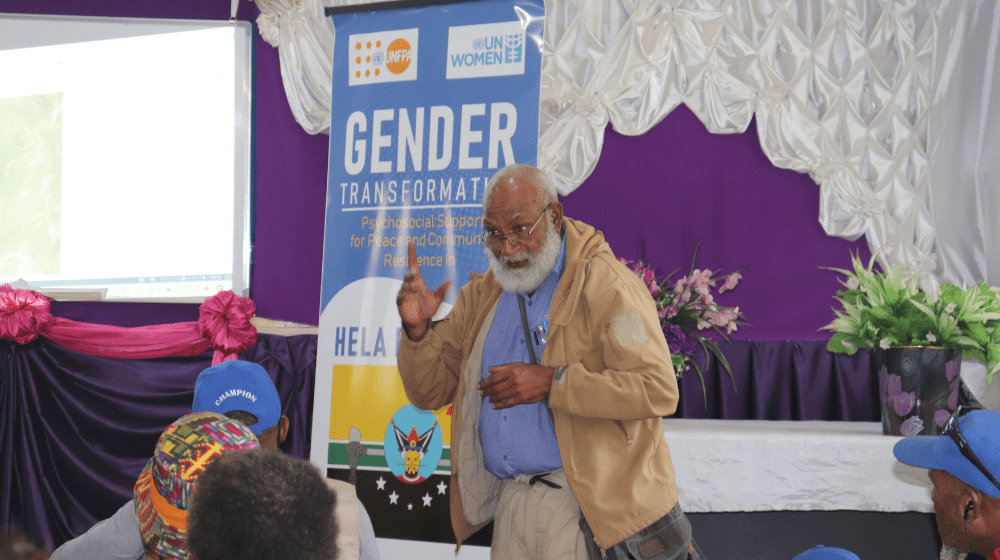Coordinators from Learning Empowerment Centers in Hela Province, health and community workers and persons living with disability participated in a one-day workshop on Disability Inclusion conducted by the United Nations Population Fund, last week in Hela Province.
A total of 21 participants analyzed the different types of disability, the stigma and labeling that is associated with it and the barriers that exist in their communities and provinces, when it comes to addressing the issue of disability.
Dr. Micheal Mai, the Deputy Chief Psychiatrist for the Highlands Region, participated in the workshop and spoke of the Disability - Social Model- a model that identifies disabilities as a part of life, and advocates for these needs to be integrated into society in a comprehensive manner.
“There has to be a holistic approach that focuses more on the abilities rather than the disabilities. A person may be visually impaired, but that should not limit him or her to access opportunities and build a better life. Rather, society should learn to adapt and be more supportive through facilities and provision of tools that can maximize the capabilities of persons with disabilities.”
Dr. Mai further added that when more focus is placed on their disabilities, stigma and discrimination are often frequent.
“Stigma and discrimination towards persons living with disability is present because people neither understand disability, nor the people living with it. Living with an impairment is not only physical but there are emotional, psychological and social aspects to it and our people need to be educated on this.”
This one-day Disability Inclusion workshop was based on the United Nations Population Fund disability inclusion strategy and the CBM Disability Mainstreaming Toolkit with the objective to facilitate an exchange between People Living with Disabilities (PwD) and community stakeholders, contributing to the investment of community-based psychosocial support and the wellbeing of communities affected by tribal fights and other hardships in Hela Province. Furthermore, participants discussed ways to protect everyone’s rights inclusively, while strengthening the accessibility of available services for PwD and ensuring they are included in decision making.
The workshop was conducted through the “Gender transformative psychosocial support for peace and community resilience in Hela Province” project focused on strengthening community-based psychosocial support in Tari and surrounding areas and encouraging community ownership.
“There is a need for more training like this in our communities, and we are grateful for this training and look forward to more of this disability inclusion training. It is an eye-opener for most of our community leaders who just participated.”


